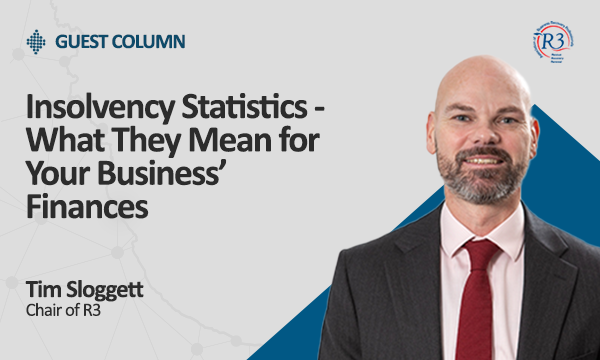The Basic Principles Of Insolvency Practitioner
The Basic Principles Of Insolvency Practitioner
Blog Article
Some Known Details About Insolvency Practitioner
Table of ContentsA Biased View of Insolvency PractitionerThe 8-Second Trick For Insolvency PractitionerThe 6-Minute Rule for Insolvency PractitionerUnknown Facts About Insolvency PractitionerThe Greatest Guide To Insolvency PractitionerThe Insolvency Practitioner PDFsHow Insolvency Practitioner can Save You Time, Stress, and Money.
Bankruptcy is when obligations are greater than the worth of the business, or when a borrower can not pay the financial obligations they owe. A business can come to be financially troubled as a result of a number of scenarios that bring about poor capital. When faced with bankruptcy, a service or person can speak to financial institutions straight and restructure debts to pay them off.
Bankruptcy can result in bankruptcy proceedings, in which lawful action will certainly be taken against the financially troubled person or entity, and assets. Insolvency Practitioner might be sold off to repay arrearages. Entrepreneur might speak to financial institutions directly and restructure financial obligations into more convenient installments. Lenders are commonly open to this approach since they intend to be paid off and stay clear of losses, even if the settlement gets on a postponed routine.
The proprietor develops a proposal outlining just how the financial debt may be reorganized making use of cost reductions or other strategies for support. The proposition reveals financial institutions how business might generate sufficient capital for profitable operations while paying its debts. Generally, a forgiven financial obligation may be thought about revenue by the Internal Income Solution (IRS).
Unknown Facts About Insolvency Practitioner
When a company needs to pay raised prices for products and services, the firm passes along the cost to the consumer. As opposed to pay the increased cost, numerous consumers take their organization elsewhere so they can pay much less for an item or solution. Losing clients results in losing earnings for paying the company's financial institutions.
The organization may end up paying big quantities of money in problems and be not able to continue procedures. When procedures stop, so does the company's revenue. Absence of income leads to unpaid costs and financial institutions asking for cash owed to them. Some companies become bankrupt due to the fact that their goods or services do not advance to fit customers' altering demands.
Rumored Buzz on Insolvency Practitioner
Costs exceed revenues and costs continue to be unpaid. Kinds of insolvency include cash-flow insolvency and balance-sheet insolvency. Cash-flow bankruptcy happens when a company has the possessions to cover their debts yet they are in the incorrect form, such as real estate rather than liquid funds. Balance-sheet bankruptcy, on the various other hand, shows a lack of properties in any type to cover financial debts.
The IRS states that an individual is financially troubled when the complete obligations exceed overall assets. Insolvency Practitioner. A personal bankruptcy, on the various other hand, is an actual court order that shows exactly how a financially troubled individual or service will certainly pay off their creditors, or exactly how they will certainly sell their properties in order to make the settlements
A Biased View of Insolvency Practitioner
When a firm or person is insolvent, they can not fulfill their monetary obligations. Bankruptcy is not the same as personal bankruptcy, although a business that has actually ended up being insolvent might file for bankruptcy. Bankruptcy is the state of not being able to pay your commitments while insolvency is a lawful process to discharge your debts.
Recognizing the aspects that can lead to insolvency, such as overspending, can help you stop insolvency and its repercussions.
Things about Insolvency Practitioner
It is popular that directors and policemans of firms (and managers of limited obligation firms) owe fiduciary obligations to their companies and their investors (or members). These fiduciary commitments are specified by state statutes and, though there are variants from state to state, they usually consist of an obligation of commitment and a duty of care.
The task of treatment requires supervisors and officers to exercise diligence, to make educated choices, and to act in great belief so that their activities remain in the most effective interest of the business. Beyond the range of this explanation conversation, some states enable these tasks to be limited either by so keeping in mind in the organizational documents or abiding with other demands.
Some Ideas on Insolvency Practitioner You Should Know

Beware about giving investors special treatment at the expense of financial institutions (e.g., authorizing and moneying a returns or a supply redemption). Be careful about favoritism between courses of investors. Make reasonable efforts to discover all the realities prior to taking a particular training course of activity; directors ought to really think that any type of decisions made are in the very best interests of the firm in its totality (i.e., decisions will be reviewed in knowledge because of the impact of such activities on the company).
In any type of insolvency or bankruptcy case, repayments made to certain creditors at the expenditure of find out this here various other lenders can be clawed back, especially if there is some link in between the firm and the creditor. Consider proposing at an annual investor conference (or any kind of various other conference of investors) a resolution attesting that all previous organization choices and activities taken by the directors and police officers of the firm were absorbed great faith after a workout of practical treatment.
An Unbiased View of Insolvency Practitioner
Fully reveal any kind of personal or company connections with events beyond of deals including the company to prevent the look of a conflict of rate of interest. In examining possible fund raising transactions or a sale of possessions of the distressed company, be aware that these deals may be scrutinized later because of any type of subsequent development of supervisors' fiduciary responsibilities to include lenders.
Report this page